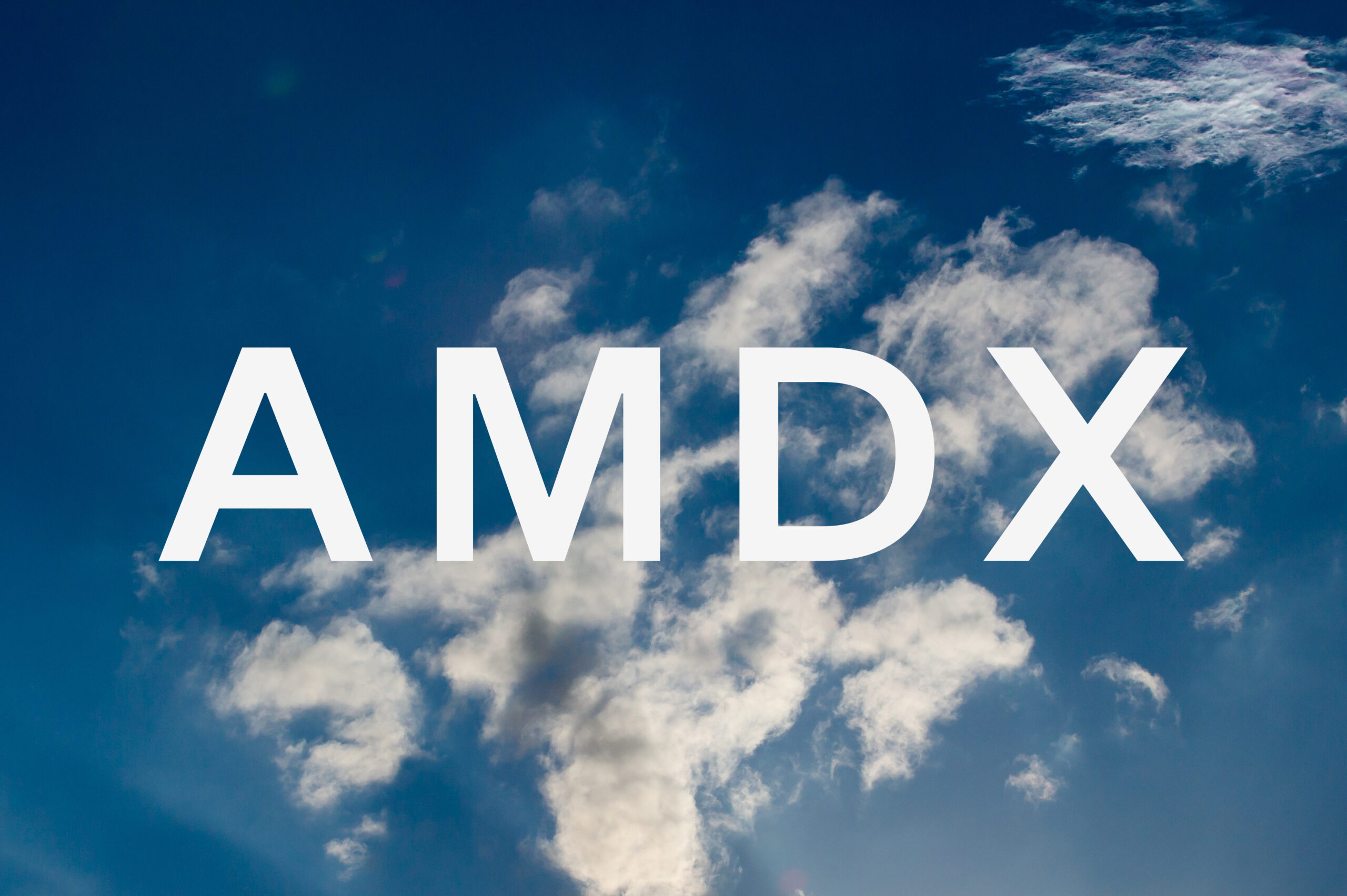A CLOSER LOOK AT How AI can and will fuel future performance marketing success
In the rapidly evolving world of digital marketing, staying ahead of the curve will be critical for any e-commerce business looking to boost incremental revenue growth and expand their customer base in the face of new technologies. One trend that is set to revolutionize the industry is the integration and potential impact of artificial intelligence (AI) in affiliate marketing.
This article will explore how AI is poised to transform the affiliate marketing landscape, offering e-commerce businesses unprecedented opportunities for future growth, efficiency, and profitability.
A quick overview of affiliate marketing
Affiliate marketing is a performance-based marketing tactic in which businesses (or merchants) partner with publishers—otherwise known as ‘affiliates’—to promote their products or services. These affiliates earn a commission for each sale or conversion generated when shoppers either click on an affiliate’s unique, UTM-tagged referral links or, more recently, redeem an affiliate-attributed linkless coupon code.
Affiliate marketing has long been a powerful marketing tool for e-commerce businesses at every stage of growth. This is because affiliate marketing offers numerous benefits:
- High profitability: As a pay-for-performance channel, wherein merchants only pay affiliates when they drive a sale or conversion, affiliate marketing will always be ROI-positive.
- Targeted traffic: Affiliates often cater to niche yet engaged audiences. By partnering with select publishers, merchants can effectively reach potential customers who are more likely to convert.
- Brand awareness: Diversifying the publisher mix helps businesses expand their reach and exposure to new audiences who are actively shopping for the products and services they offer.
This explains why affiliate marketing has seen significant growth in recent years, reaching $16.2B in market value in 2023—and anticipated to hit nearly $40B in market value by 2030. This is likely to be fueled by the most popular sectors in the affiliate marketing channel, including fashion, beauty, technology, and home goods, with average publisher commissions ranging from 5% to 30%.
5 likely ways AI will impact affiliate marketing in the (near) future
As AI continues to make ripples across virtually every industry and sector, its impact and influence on affiliate marketing—along with all other performance channels—will undoubtedly be profound. Here are five key AI trends that we anticipate rising to the surface in the affiliate marketing channel this year:
- Highly personalized and targeted marketing campaigns: AI-powered algorithms will enable affiliate marketing platforms and publishers to analyze vast amounts of customer data—including first-party data, the new “gold standard” post-Google Chrome cookie deprecation—to effectively target, reach, engage, and convert shoppers with increasingly dynamic placement opportunities that offer that serve up relevant content and timely promotions at the moment when shoppers are most likely to transact along their journeys.
Amazon is a great example of this, where the company uses AI-driven product recommendations to personalize the shopping experience, thereby boosting engagement and conversion. - Optimized influencer marketing: One of a brand’s biggest challenges today is finding influencers and brand ambassadors who actually move the needle of revenue growth. AI will be able to help brands identify the most likely-to-perform influencer partners by analyzing engagement rates, audience demographics, and content quality via a brand-relevant lens. Not only will this speed up influencer recruitment and onboarding, but it will also provide insight into optimal yet fair commission rates at the influencer-by-influencer level to maximize ROI.
- Streamlined affiliate partnership management: Intelligent algorithms along with the launch of various automated processes will help merchants optimize their affiliate programs more effectively than ever before. For one, this will enable brands to accurately identify top-performing publishers and also make more informed decisions about how best to allocate resources to continue and amplify that success. Additionally, tools like Rakuten Advertising’s soon-to-launch Partnership Discovery will use AI to connect brands with the most effective publisher partners, more precisely giving brands a clear path to incremental revenue growth.
- Data-driven budget allocation: AI-powered tools will analyze data and insights on consumer shopping behavior, market trends, publisher performance, and competitor activity to enable advertisers to make more informed decisions about budget allocation and strategies for long-term affiliate program profitability. This includes tactics like publisher-level commission optimization and paid placement performance targeting—in a similar vein to how many of today’s demand-side platforms enable real-time bidding based on accurate performance data.
- Enhanced fraud detection and prevention: AI will be put to good use by e-commerce businesses, affiliate marketing networks, and the entire publisher ecosystem to detect, alert, and ultimately prevent fraudulent activities—such as click fraud or fake conversions—before they become widespread issues. This will not only allow affiliate marketing networks and publishers to reinforce the security and trustworthiness of the affiliate marketing-driven transactions they drive, but it will also help merchants paint a clearer picture around real affiliate marketing performance. Companies like Fraudlogix are already using AI to identify and block suspicious traffic to protect and eliminate the possibility for fraud-related activities that ultimately drive up a merchant’s CPA (cost per acquisition) and CPC (cost per click).
This merely scratches the surface of what will be possible once AI weaves its way into the entire affiliate marketing ecosystem. But for now, we are certain that AI will bring new levels of automation, targeting, performance, analytics, and reporting to a traditionally manual and relationship-driven channel.
4 benefits of affiliate marketing AI for e-commerce businesses
AI is poised to streamline all aspects of the affiliate marketing channel, thereby making it an essential element of any e-commerce business’s end-to-end performance marketing strategy. Here’s why:
- Heightened Efficiency: By analyzing real-time consumer shopping patterns and preferences, AI-powered tools can help businesses reach the right customers faster across the entire affiliate marketing ecosystem at the optimal point in their shopping journey. These tools can also help automate once manual and often time-consuming processes, thereby freeing up time for merchants and their agencies to stay focused on building long-term growth strategies.
- Increased Profitability: AI can also help merchants devise highly customized publisher commissioning strategies, enabling them to target and optimize ROI efficiently across their entire publisher network and respond strategically to spikes in performance, either upward or downward. Additionally, by digging into historical performance data and layering it onto real-time market dynamics and other shopper insights, AI provide brands with actionable insights that can drive profitability across all affiliate marketing tactics, from promo activation to media spend and publisher recruitment to coupon strategy—and well beyond.
- Enhanced Predictability: One of the greatest benefits of AI is its ability to leverage vast amounts of data and knowledge to build smart models that can accurately anticipate shopping trends and can respond quickly by surfacing the most relevant affiliate links, promotions, coupon codes, conversion incentives, and other content at the exact moment when shoppers are most engaged and ready to buy. This kind of predictive analytics can give e-commerce businesses an edge in staying one step ahead of their customers, making it increasingly possible to deliver the right message, in the right place, and at the right time. This will not only improve the customer experience, but it will also lead to greater conversions and more repeat purchases.
- Improved Relevancy: AI will empower publishers, with automated tools and data-driven consumer insights, to generate highly personalized, deeply engaging, and well-optimized content—across all marketing touchpoints and tactics—that resonates with their shopping audience. This is the key to boosting a brand’s visibility among a diverse array of shoppers, while also increasing conversion at every point along the customer shopping journey.
A few potential pitfalls of AI in marketing
We all know that the arrival of any new technology comes with its own learning curves and challenges. While it’s certain that AI’s impact on affiliate marketing will undoubtedly bring an entirely new level of innovation and sophistication to the channel, there are nonetheless a few things to keep in mind:
- Time and cost investment: Implementing AI-powered tools and systems may require a significant upfront investment—or in some cases, a complete overhaul of a brand’s full suite of marketing tools and platforms. Such a major undertaking could be prohibitive for smaller e-commerce businesses, not just in terms of cost, but also in terms of time for learning how to use new tools effectively. Although many of these tools are actively integrating AI features and functionality today to stay relevant, there’s no doubt this will open the door to new players who challenge the status quo.
- Data privacy concerns: Businesses must be transparent about their data practices and ensure complete compliance with relevant regulations, such as GDPR and CCPA. Failing to do so can result in hefty fines and reputational damage, as was the case of British Airways, which faced a £20 million fine for a data breach in 2020. While the promises of speed, efficiency, automation, and beyond make AI’s arrival in the affiliate channel appealing, the fact that it can have access to such valuable and, sometimes, sensitive customer information has given the entire marketing industry a reason to pause and get buttoned up on the data privacy front.
- Lack of trust: We’ve only scratched the surface with what’s possible with AI. However, we can’t and shouldn’t rely on AI blindly. Like any other technology, it will require a significant amount of human oversight to ensure quality and accuracy, while also being free of “programmed” bias. Even a small kink in the AI chain causing brands, marketers, agencies, and shoppers to lose faith in the solutions that AI serves up can undermine all the good it can bring to the industry over the long-term. To mitigate this risk, businesses must ensure that their AI systems are regularly audited for fairness, transparency, and accuracy.
- Ethical considerations: Furthering the above, the use of AI in marketing has already raised numerous ethical concerns around things like algorithmic bias, data privacy, covert fraud, and other kinds of unchecked or unnoticed manipulation. To avoid an unpleasant controversy, businesses must prioritize ethical AI practices and maintain open communication with their customers about how they are using AI to enhance, improve, and streamline the customer experience. Similarly, the companies creating these AI solutions must take it upon themselves to ensure that any good intentions, in the spirit of technological innovation, aren’t left exposed to be weaponized for malicious purposes.
How to prepare for an AI-fueled affiliate marketing future
To stay ahead of the curve and prepare for the inevitable (and widespread) impact of AI on affiliate marketing, there are a number of things that e-commerce businesses should do now:
- Invest in the right AI tools and platforms: While the major e-commerce players, affiliate marketing networks, data and analytics platforms, and tech-first publishers are already hard at work infusing new, AI-driven features and functionality into their solutions, there’s a wide array of pure AI players that can help you improve, streamline, and optimize all aspects of your affiliate (and performance) marketing activities now. This is the time to test those solutions, identify those that align to your business model, and make them a permanent part of your workflow. AI is rapidly transforming the entire marketing ecosystem; this is not the time to “wait and see.”
- Build up AI expertise: Many who have dived head-first into the wild world of AI might make it seem as though anything is possible with a simple prompt or a few clicks. The truth is, as with any new technology or innovation, there is a learning curve to AI. In fact, each AI-optimized tool and platform you use offers a different user experience with varying capabilities. Before AI becomes table stakes in the world of affiliate marketing, take this opportunity to assess where AI can improve your marketing workflows and skill up on how to use AI best to address those needs. Even better, lean into the knowledge of expert partners, like the team at AMDX, to help you get over the AI learning curve and supercharge your affiliate marketing program now.
- Keep up with the latest AI evolutions: AI is evolving and maturing at a dizzying pace. Unless you live and breathe all things AI every single day, it’s easy to get overwhelmed with how fast this industry is moving. Aside from attending key industry events and reading up on the latest and greatest AI news in newsletters, case studies, and research, the team at AMDX will be keeping tabs on how AI is rapidly transforming the affiliate marketing ecosystem—and sharing insights, perspectives, and predictions whenever they arise.
- Prioritize data privacy and ethical AI practices: This may seem like a no-brainer, but with AI becoming more intertwined with all aspects of (affiliate and performance) marketing, it will be critically important to both ensure compliance with relevant data regulations and maintain transparency around how you use AI to target, reach, engage, and convert customers. Failing to do so can lead to less-than-stellar customer experiences that could lose a loyal customer’s trust.
- Optimize for continued success: Implementing AI solutions into the day-to-day management of your affiliate marketing program is not one-and-done—nor will they be the “magical” solution to all your analytics and insights problems. However, given their access to vast stores of knowledge, these solutions will help you extract the greatest amount of value out of your affiliate program. Be sure to identify reasonable KPIs—around success measures like clicks (traffic), conversions, AOV, and revenue—and leverage AI-driven insights non-stop to amplify success over time.
The influence of AI on affiliate marketing in 2024 (and well beyond) is likely to be nothing short of transformative. By embracing and testing these new innovations now, e-commerce businesses can harness the power of AI to drive measurable growth, efficiency, and profitability in their affiliate marketing efforts. This is the key to staying ahead of the curve and transforming your affiliate marketing program into an undeniable performance marketing powerhouse for your brand.


